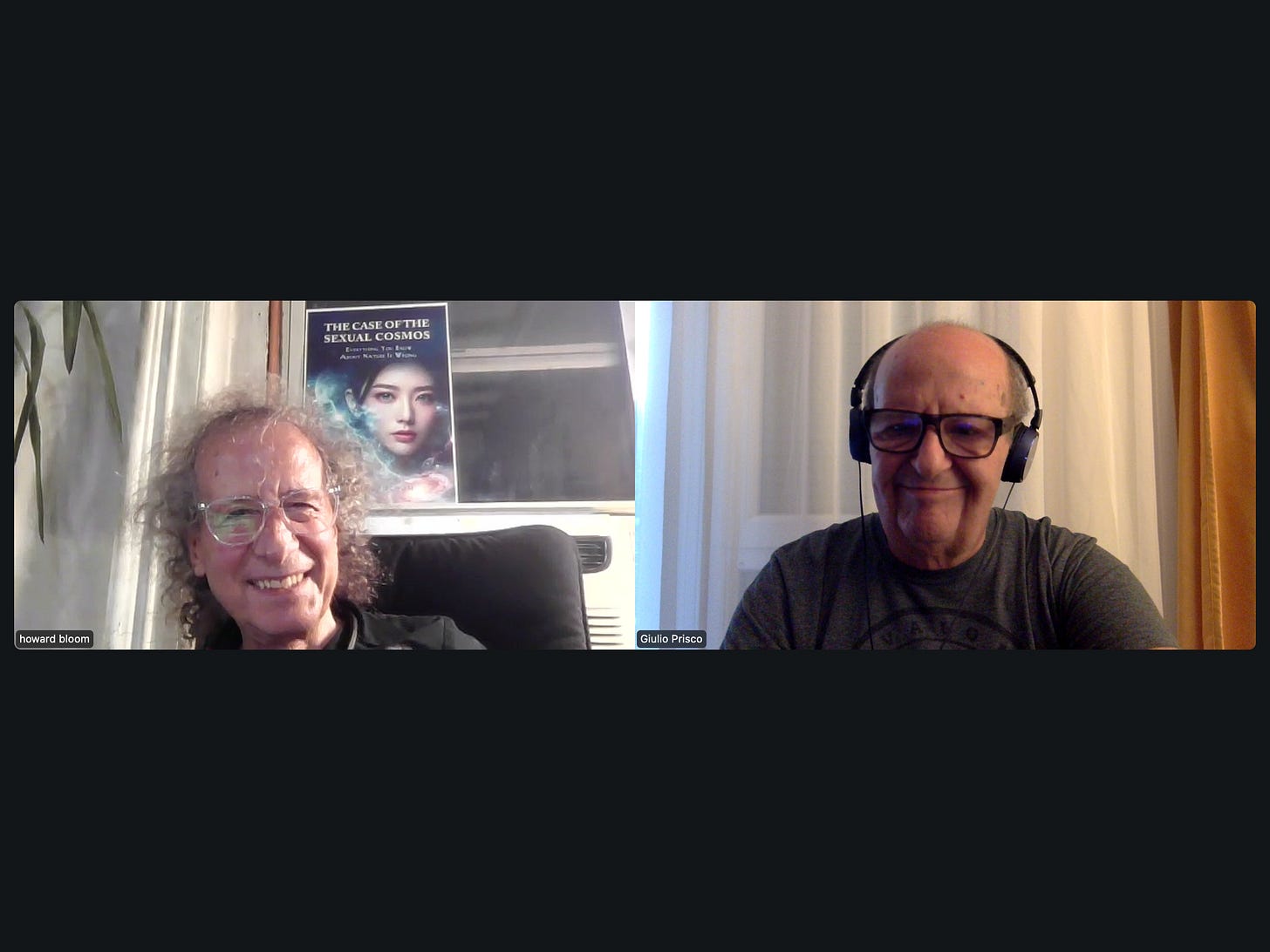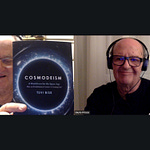This conversation with Howard Bloom continues my previous conversation with him of three years ago. We discussed (among other things) Howard’s new book “The Case of the Sexual Cosmos: Everything You Know About Nature is Wrong” (2025). My review of Howard’s book is here, and a shorter version is on Amazon (5 stars of course).
I had prepared these question for Howard:
Howard is a Democrat and doesn’t like Donald Trump. Yet, he continues to like and support Elon Musk and oppose “Bernie-Sanders-style progressives.” Some would see a contradiction here, but I don’t. To me, Trump is a strong immune reaction of the cultural operating system, perhaps unpleasant, to the “progressives” (in scare quotes) who oppose progress.
I look forward to hearing what Howard thinks real progressives (without scare quotes) could and should do to build a culture able to green the galaxy… without Trump.
Stupid me, I forgot to introduce this point. Too bad, because it is one of the most important ones. I’ll keep it in mind for a next conversation with Howard.
Howard doesn’t talk much about artificial intelligence (AI) in this book, but it is becoming clear that AI will play a key role in human affairs on this planet and beyond. I asked Howard this question: Should we still want to send human astronauts to colonize space? Or should we want to leave space expansion to AI?
Howard’s first law of flamboyance is formulated suggestively and poetically, so to speak, and supported by many examples from biology and human history. But a physicist like me would like to hear more about the physics of Howard’s first law.
All things “tend to bloom,” says Howard Bloom.
“Is this statement mathematizable? Probably not. Which means we need a new math,” says Howard. “One that starts with the rules of flamboyance, the rules of emergent properties, then works its way downward from there. A math that can explain the cosmos’ gobsmacking creativity.”
There’s a hint at what this new math could be: “a mathematical model of the universe as ‘a learning machine’ … a complex adaptive system, a neural net.” Here Howard is referring to a 2021 paper titled “The Autodidactic Universe.” See chapter 8 of my “Irrational mechanics” for this and related ideas.
Besides this hint, Howard doesn’t seem to have this new math. Or perhaps he does and will reveal it in his next book? I asked him about his next book.










